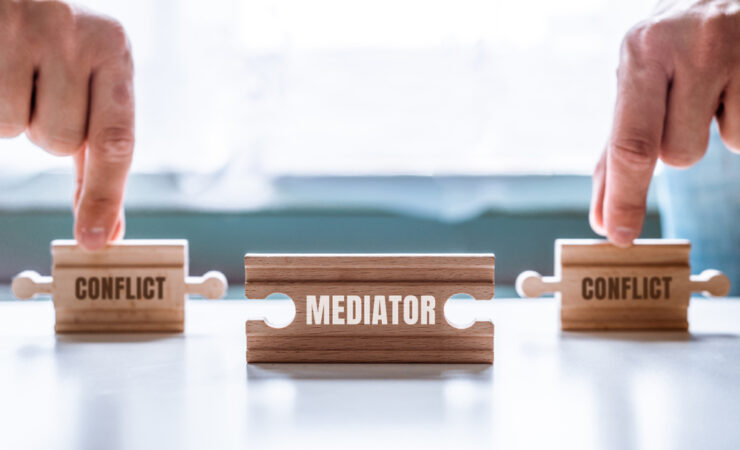Sports disputes are inevitable, but mediating these disputes before taking them to arbitration can often save a lot of time and energy for all parties involved. In this blog, we will explore why mediation is a must before taking any sports dispute to arbitration and how it can help athletes and sports administrators alike. So strap on your thinking caps, because this journey into the world of sports dispute resolution is about to begin!
Benefits of Mediation

Sport Mediation is a voluntary process in which a neutral third-party facilitates communication between disputing parties, helping them to reach agreements on their own. This process can be beneficial for sports disputes as it allows all involved to come together, explain their cases, and agree on a mutually acceptable solution. The benefits of mediation in sports disputes include the following:
- Flexibility – It provides the parties with an opportunity to negotiate their own terms, allowing them to look beyond conventional options and come up with unique solutions that meet everyone’s needs.
- Efficiency – It is typically faster than other types of dispute resolution methods, allowing all involved parties to move forward quickly and confidently. If you are looking for a fast resolution of your dispute, make sure to definitely check out http://sportsmediationservice.org.nz/.
- Lower Costs – Typically mediation proceedings cost much less than court fees and other forms of Athletics Dispute Solution (ADS). In addition, this option is typically less expensive than arbitration or litigation proceedings due to the limited resources needed for successful resolution.
- Confidentiality – All conversations had within intermediary meetings are kept strictly confidential between all participants, providing a private space to have frank conversations about core issues without fear of media scrutiny or public opinion influencing the outcome of negotiations.
- Positive Resolution – Rather than leaving feelings or relationships between parties damaged from traditional dispute proceedings such as arbitration or court action, it enables both sides to come away feeling respected and heard by one another during the resolution process itself – leaving all more confident moving forwards towards a positive future working relationship if need be!
Types of Sports Disputes
sports disputes are complex and require an understanding of various legal and contractual matters. The types can be divided into three broad categories.
The first broadly includes labor-related disputes that arise between employers, employees, and independent contractors in the sports industry; examples include contract issues and employee grievances. The second category is composed of disputes related to the use and sharing of revenues, such as those arising from television or Internet broadcasts as well as revenue sharing among league members. Finally, cases involving allegations involving antitrust, deceptive practices, drug or steroids use by athletes fall into the third category.
In each type of dispute, stakeholders in the industry expect resolution in a timely manner with minimal disruption to operations; hence, utilizing efficient means of conflict resolution are important considerations when handling these matters. Mediation is a proven method to consider when attempting to resolve sports conflicts before resorting to costly litigation or arbitration processes with unfavorable outcomes for both parties involved.
Advantages of Mediation Over Arbitration

Mediation is a form of dispute resolution that does not involve a third-party decision maker and is a less formal process than arbitration. It provides for an opportunity for the parties to openly discuss their disputes and work on achieving an agreeable outcome. In contrast, arbitration involves having a third party to make a decision based upon the facts/arguments presented by each side.
Advantages of mediation over arbitration include:
- Cost: The cost can be considerably lower than the costs incurred in traditional arbitration proceedings, which usually require retaining expensive legal counsel and fees for arbitrators. By utilizing mediation, parties can save thousands in cost related to the process.
- Speed: Mediations typically take place within weeks, whereas arbitration can sometimes take months or even years due to the complicated process involved in the entire procedure.
- Flexibility: It provides more flexibility with respect to outcomes as opposed to traditional forms of dispute redress such being reached through arbitration and litigation processes. During transfers, negotiating arbitrators will take into account requests from both sides before reaching an agreement that works best for both parties involved while affording each side equal power in negotiation and dispute settlement.
- Collaborative Process: The mediator also serves as an agent of understanding between two different viewpoints by facilitating discussions between each side so that everyone involved has a better understanding of one another’s desired outcomes from negotiations and can arrive at agreed upon solutions. This helps build better relationships between parties, which can further prevent disputes from arising in future dealings or collaborations between them.
The Process of Mediation

It is a process of dispute resolution which seeks to resolve disputes between the disputing parties in an informal and consensual manner. In sports disputes, mediation is the process of trying to reach an agreement that is acceptable to all parties involved. It typically begins with one party making a proposal for resolution, as well as evidence that supports their position. The other party then analyzes the evidence and may accept, reject or make a counter-proposal for further negotiation. This process of exchanging proposals and counter-proposals continues until a mutually acceptable agreement can be reached.
The advantages of it are that it enables both parties to come together in an open and frank dialogue in order to discuss their issues at hand. This leads to increased understanding between them, which in turn helps create trust between them, reducing the chances of misunderstanding or disagreement in the future. Moreover, with it, comprehensive solutions can be found since proposals are made without adjudication so both sides view each other objectively. Moreover, it is often faster than arbitration since proceedings do not have to wait on any particular date or time before beginning proceedings
Moreover, mediators have specialized skills that help ensure successful outcomes such as techniques for resolving difficult discussions between parties by guiding them through different approaches and by developing innovative solutions with no guilt or blame attached. As such they are pivotal to successful outcomes regarding sports disputes where matters are often highly emotional and must be delicately managed if successful resolutions are sought after.
Conclusion
In conclusion, mediation is the preferred approach to resolving sports disputes. It allows for a resolution of the dispute in a timely, economical, and confidential manner that preserves relationships and maintains collaboration between the parties involved. Unlike arbitration, mediation does not require conflicting sides to battle it out in a courtroom setting, generating further animosity between the two parties and lengthy court proceedings. Furthermore, mediation fieldhouses discuss various issues in complete confidence and confidentiality which enable better progress towards an agreement. With so many advantages on offer, it would be beneficial for any sports person or organization looking to resolve their dispute quickly and efficiently to explore the option of choosing mediation as an effective dispute resolution mechanism for their issue before considering arbitration as an alternative solution.

